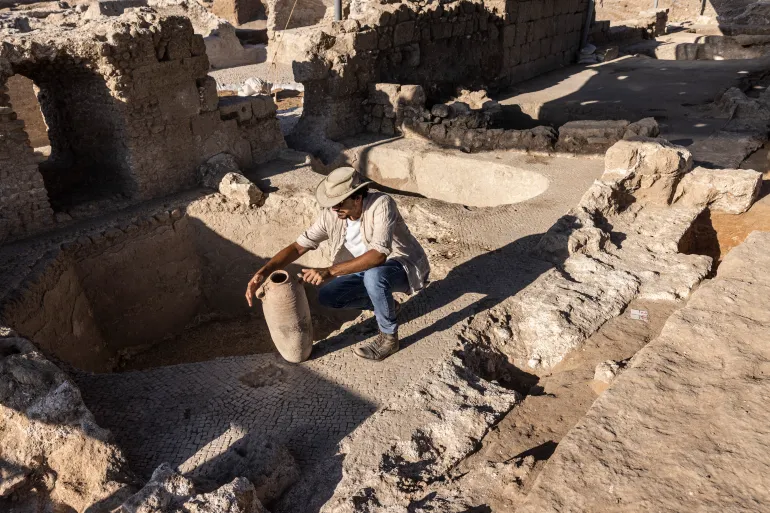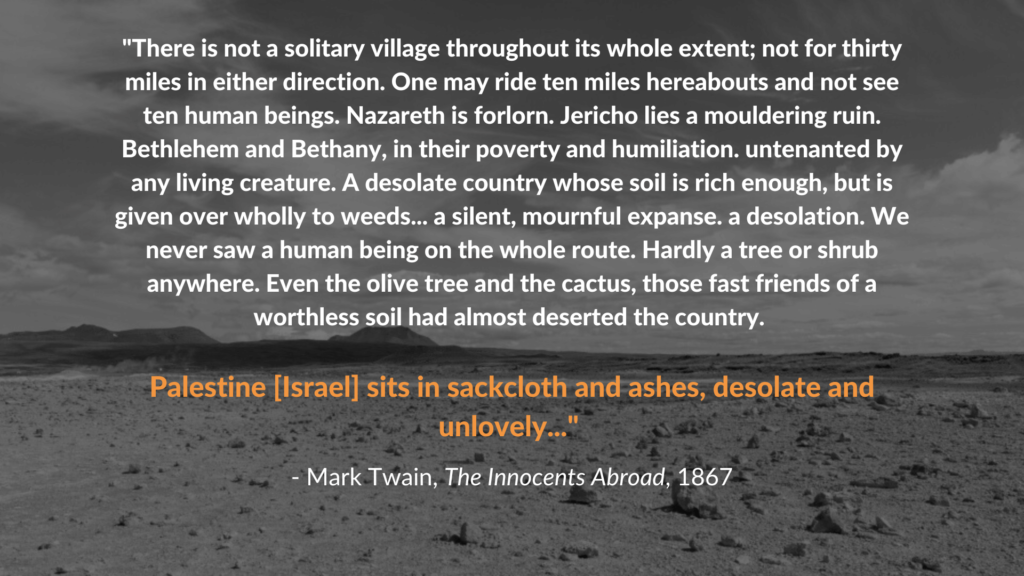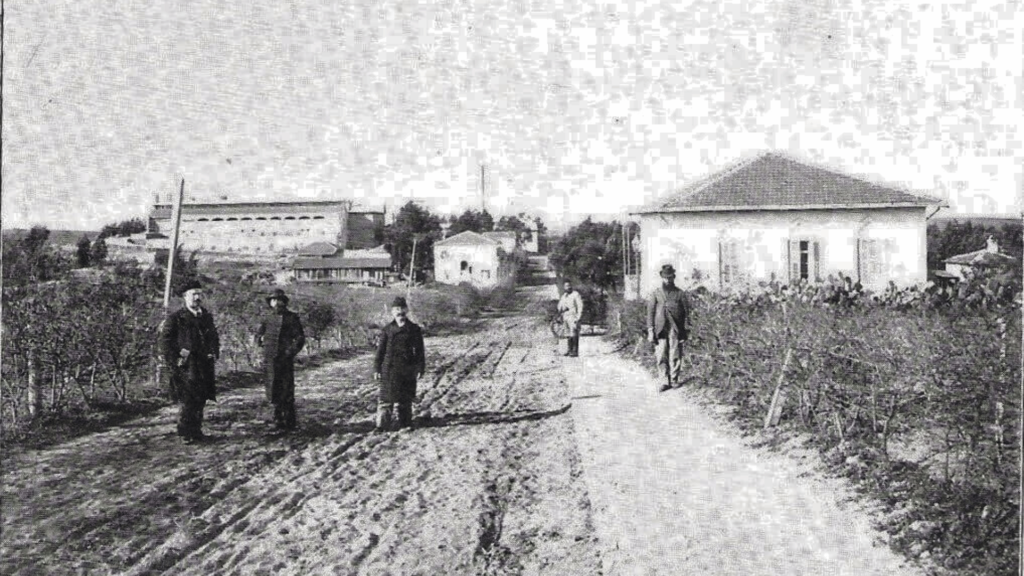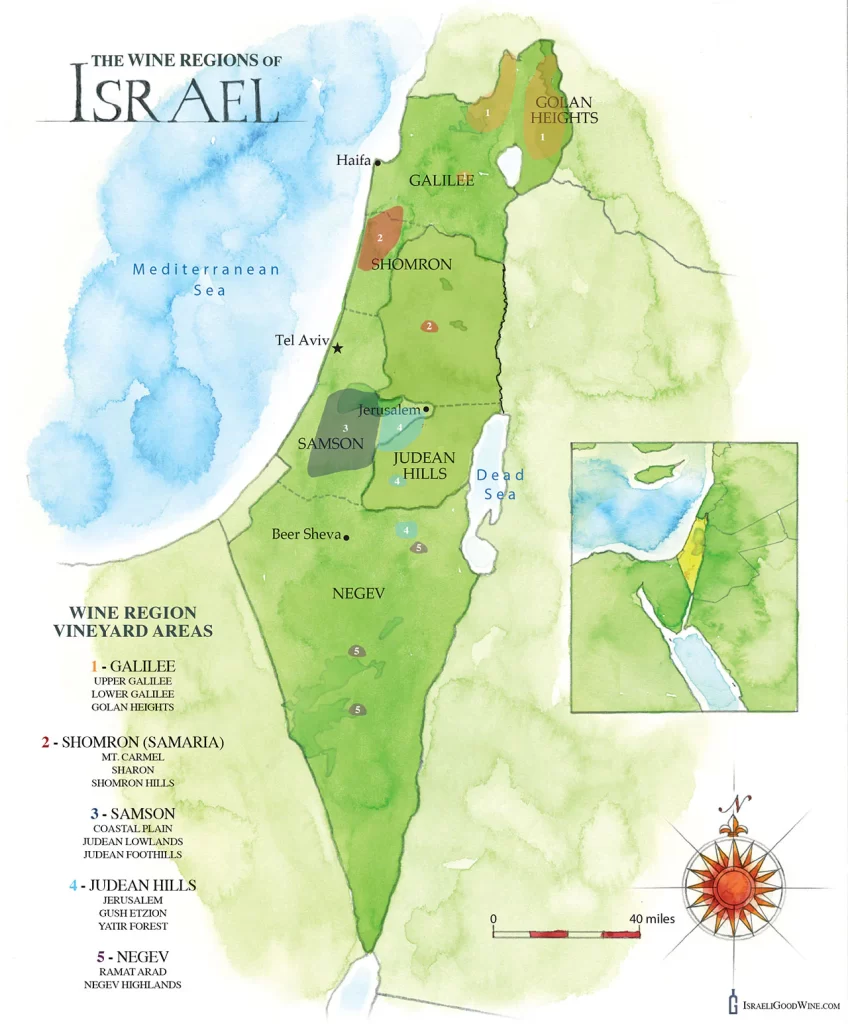A Brief History of Wine in Israel
The history of winemaking in Israel is both ancient and modern, spanning thousands of years and reflecting the region's deep connection to viticulture. Here's a summary of its fascinating journey:
Ancient Roots
Wine has been a vital part of Israel’s culture and economy since biblical times. Archaeological evidence reveals that vineyards thrived in Israel as early as 5,000 years ago, with wine playing a central role in religious rituals, trade, and daily life. Grapes were grown across regions like Judea, Samaria, and Galilee, and Israel’s wine was renowned across the Mediterranean world.
Biblical texts frequently mention wine, from Noah planting the first vineyard to its role in Jewish rituals like Kiddush (sanctification) during Shabbat and festivals. The region’s fertile soil and favorable climate made it ideal for grape cultivation, and wine became integral to the culture and economy of the ancient Israelites.

“Israel has been making wine for 5,000 years. In the last 20 years or so, it’s turned out to be rather good. In the last 10 years, it’s been an absolute wine revolution.”
Adam S. Montefiore

The desolation of the land
For a time during Roman rule, the Holy Land briefly revived the cultivation of grapes, and vines were planted in places like Bethlehem and Nazareth. However, the restoration of the land was short lived. When the Crusaders returned to Europe, they managed to bring with them many noble grape varieties, such as Chardonnay, Muscat and Shiraz, which originated in the Middle East.
The region’s winemaking tradition suffered during the Islamic periods, particularly after the 7th century AD when the rise of Islamic rule, which discouraged alcohol consumption, led to the decline of the wine industry. Over time, vineyards were replaced with other crops, like table grapes and olive plants, and the once-thriving industry dwindled. Much of the soil remained untilled for thousands of years. This resulted in soil rich in minerality and ripe for a wine revival
The land was observed as “desolate and unlovely” by famed author Samuel Clemens (pen name, Mark Twain) in 1867 when he visited and subsequently wrote The Innocents Abroad.
The Modern Wine Revival
The rebirth of Israeli winemaking began in the late 19th century, led by Jewish philanthropist Baron Edmond de Rothschild, owner of the famed Château Lafite Rothschild in Bordeaux. He recognized the potential for Israeli wine and provided support to establish modern vineyards in Israel, primarily in the coastal regions like Rishon LeZion and Zikhron Ya’akov. Rothschild brought in French expertise, grape varieties, and techniques, reviving the industry.
For much of the 20th century, Israel’s wine production focused on sweet, sacramental wines for Jewish communities worldwide. However, in the 1980s, a significant shift occurred as Israeli winemakers embraced the global trend toward high-quality, dry table wines.

The New Israeli Wine Renaissance
Mirroring the diversity of the people of Israel, the winemakers and the wine varietals grown in the land are numerous, distinct, and rich.
During the Second World War, the wine industry began to grow again. By the establishment of the State of Israel in 1948, there were fourteen wineries in existence. Today there are 40 wineries harvesting 50 tons or more, 250 boutique wineries and many more “garagiste” or domestic wineries with just over half of them considered Kosher.
“In such a climate, tending vineyards and producing wine is an act of courage and of optimism. I have enormous admiration for the majority of Israel’s winemakers… Surrounded by anger, dogma, devastation, deprivation, mutual suspicion and… politics, they offer the possibility of hope for a better future.”
Tim Atkin, MW
The Observer/Off License News
Wine Varietals and Regions
The 1990s marked the true renaissance of Israeli wine, driven by technological advancements, education, and an increasing global demand for fine wines. Winemakers began exploring the unique terroirs of Israel, from the Golan Heights to the Judean Hills, and focused on producing world-class wines that could compete on the international stage. Vineyards were planted in diverse regions, each offering unique microclimates and soil types, ideal for growing a range of grape varieties like Cabernet Sauvignon, Merlot, Syrah, and indigenous varieties such as Argaman.
Today, Israel has over 300 wineries, ranging from large producers to boutique wineries, and its wines are gaining recognition and awards in prestigious competitions worldwide. The wine regions in Israel are diverse, including Galilee, the Golan Heights, the Judean Hills, Negev, and the coastal plains. Israeli wines are known for their bold flavors, innovative blends, and a deep connection to the land’s history and traditions.
Israel boasts traditional and unique varieties to the region as well as Bordeaux style blends. The three most heavily planted varieties in Israel today are Cabernet Sauvignon, Carignan and Merlot followed by Shiraz, Argaman and Petite Sirah. Most of the best red wines are either Cabernet Sauvignon, Merlot or Shiraz varietals or Bordeaux blends based primarily on Cabernet Sauvignon and Merlot. The main white varieties producing the finest white wines in the region are Chardonnay and Sauvignon Blanc. There are also fantastic White Rieslings, Gewurztraminers and Viogniers.
The land mass of the nation of Israel is a mere 7,992 sq. miles stretching just 263 miles from north to south. Despite its small size, Israel is producing some of the best wine in the world thanks in large part to the standard Mediterranean climate of humid, hot summers and warm, wet winters. Israeli wines have gone toe-to-toe with wines from both old and new world wineries and repeatedly come out with both awards and acclaim.
Israel boasts ideal conditions for growing grapes and the wine producing areas are divided into six regions throughout Israel: Golan Heights, Galilee (Upper and Lower), Coastal Plain, Central Mountains (Carmel and Menashe Hills, Shomron Hills, Judean Hills, and Yatir), Judean Foothills, and the Negev.
The story of wine in Israel is a tale of resilience and renewal. From ancient biblical vineyards to a modern renaissance, Israeli wine continues to flourish, with a growing reputation for quality and innovation. Rooted in history, yet forward-looking, Israel’s wine industry reflects both the ancient heritage and dynamic future of winemaking in the region.

“The corner has clearly been turned qualitatively. Israel has a real wine industry that deserves consumer attention. There are attractive wines with typicity and some distinction…. Many are classic and charming and the best will impress anyone.”
Mark Squires, Wine Advocate
A Look at an Israeli Winery
Say hello to the Alfasi Family — founders and purveyors of Odem Mountain Winery in Israel. Their vineyards sit 1,060 feet high, at the northernmost point of Israel and their quality is outstanding. Each wine features hand-harvested and bunch-sorted grapes. But beyond even just the quality and flavor of their wine, their love of family, love of people, and love for wine shines through. Three of our founders, Daniel, Alana, and Elizabeth sat down with vintner and winemaker, Adam Alfasi, his sister, Yaara (the marketing director and export manager), and their father, Michael for a conversation around the table. This small glimpse of one of our favorite families and favorite wine tastings is one that we hope you’ll enjoy and share.
We believe that embracing the modern-day wine movement in Israel is a step toward men and women of all shapes, sizes, and colors living in freedom and fulfilling the call to live in peace, without fear, with the ability to work their vineyards once more in the land.
When you purchase wine from Israeli Good Wine, you are partnering with local farmers and winemakers—pioneering Israelis—who are giving all that they have to bring the land of Israel back to life. When you join one of our clubs, you’re not just receiving great wine, you’re taking part in the pioneer effort to reestablish grapevines, family, and the table in the land of Israel. And for that, we say ,“thank you” and L’Chaim!
